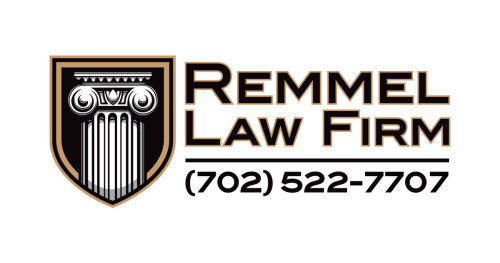Best Assault & Battery Lawyers in New Mexico
Share your needs with us, get contacted by law firms.
Free. Takes 2 min.
Or refine your search by selecting a city:
List of the best lawyers in New Mexico, United States
About Assault & Battery Law in New Mexico, United States
Assault and battery are two closely related but distinct criminal offenses in New Mexico. Assault generally refers to the threat of harm or an attempt to injure another person, creating fear of immediate harm, while battery is the actual unlawful and intentional touching or striking of another person against their will. These offenses can range from simple, misdemeanor cases to more serious, felony charges depending on the circumstances, such as the use of a weapon or the extent of injuries involved. New Mexico's laws determine the seriousness of charges based on intent, severity, and other relevant factors.
Why You May Need a Lawyer
There are many situations in which seeking legal representation for assault and battery charges is vital. Whether you are accused of committing these offenses, are the victim, or have been inadvertently involved in a confrontation, legal complexities can quickly arise. Reasons you may need a lawyer include:
- You have been arrested or charged with assault or battery.
- You believe you may face legal consequences following a physical altercation.
- You are a victim seeking protection, compensation, or understanding of your rights.
- The alleged offense involves aggravating factors, such as the use of a weapon or serious injury.
- You are uncertain about the legal definitions or distinctions between assault and battery in your case.
- A restraining order or order of protection has been filed or is being considered.
- You want to negotiate plea deals or minimize penalties.
- False accusations or mistaken identity are involved in your case.
A qualified attorney can help clarify your rights, navigate the court system, and ensure the best available outcome for your unique circumstances.
Local Laws Overview
Assault and battery laws in New Mexico are defined under state statutes. Key aspects include:
- Assault: Defined as attempting to commit a battery, or any unlawful act, threat, or display of force or violence that causes a reasonable fear of harm. It does not require physical contact.
- Battery: Defined as the unlawful and intentional touching or application of force to another person in a harmful or offensive manner.
- Simple Assault and Battery: Misdemeanors that are typically punished by fines, probation, or up to six months in jail.
- Aggravated Assault: Occurs when a deadly weapon is used, or when assault is committed with intent to commit a felony. This is a felony offense.
- Aggravated Battery: Involves causing great bodily harm, using a deadly weapon, or inflicting injury in a manner likely to cause death or great bodily harm. This is also a felony offense.
- Domestic Abuse: Assault and battery involving household or family members may be prosecuted under additional domestic violence statutes, which may include enhanced penalties.
- Defenses: Common defenses include self-defense, defense of others, lack of intent, or consent.
Understanding these laws and how they apply to your case is essential for protecting your rights.
Frequently Asked Questions
What is the difference between assault and battery in New Mexico?
Assault generally means threatening or attempting to hurt someone, causing them to fear immediate harm, while battery involves actual physical contact or harm.
Are assault and battery always prosecuted together?
No, assault and battery are separate charges. You can be charged with one, both, or neither, depending on the facts of the situation.
What are the penalties for assault or battery in New Mexico?
Simple assault and battery are usually misdemeanors, punishable by fines and up to six months in jail. Aggravated offenses are felonies, with more serious legal consequences, including longer prison sentences.
How is aggravated assault different from simple assault?
Aggravated assault usually involves the use of a deadly weapon or the intent to commit a serious crime, which makes it a felony instead of a misdemeanor.
What should I do if I am accused of assault or battery?
Seek legal advice immediately. Do not make statements to police or others until you have spoken to a qualified attorney who can protect your rights.
Can self-defense be used as a defense?
Yes, self-defense is a recognized legal defense in New Mexico if you reasonably believed you were in danger of harm and used force to protect yourself.
Can I be charged even if there were no injuries?
Yes, physical injury is not required. Threats or unwanted touching can be enough for an assault or battery charge.
What should I do if I am the victim of assault or battery?
Report the incident to law enforcement and consider seeking medical attention if needed. You may also wish to contact a lawyer to assist you in understanding your rights and pursuing further legal action.
Does a conviction for assault or battery affect my record?
Yes, a conviction will appear on your criminal record, which can impact future employment, housing, and other opportunities.
Is it possible to have assault or battery charges dropped or reduced?
Yes, depending on the circumstances and available evidence, your attorney may be able to negotiate with the prosecutor for a dismissal, reduction, or alternative resolution.
Additional Resources
Individuals in New Mexico seeking information or assistance regarding assault and battery may find help from the following resources:
- New Mexico Courts: For information on court locations, court records, and filing procedures.
- New Mexico Public Defender Department: Free or low-cost legal representation for those who cannot afford a private attorney.
- Legal Aid New Mexico: Provides civil legal services to eligible low-income residents.
- New Mexico Coalition Against Domestic Violence: Support and resources for victims of domestic assault or battery.
- Local Law Enforcement: Police departments and sheriff’s offices can help victims and provide information on filing reports or obtaining protection orders.
Next Steps
If you are involved in an assault or battery case in New Mexico, take the following steps:
- Gather all relevant documents and evidence, such as police reports, medical records, and witness information.
- Contact a qualified criminal defense or victim advocacy attorney who is experienced in New Mexico law.
- Avoid discussing details of your case with others, especially law enforcement, without legal counsel present.
- Understand your rights and responsibilities before making any decisions or statements.
- Follow your lawyer's advice carefully and attend all required court appearances and meetings.
Seeking professional guidance is crucial to protecting your interests and ensuring the best possible outcome in an assault or battery matter in New Mexico.
Lawzana helps you find the best lawyers and law firms in New Mexico through a curated and pre-screened list of qualified legal professionals. Our platform offers rankings and detailed profiles of attorneys and law firms, allowing you to compare based on practice areas, including Assault & Battery, experience, and client feedback.
Each profile includes a description of the firm's areas of practice, client reviews, team members and partners, year of establishment, spoken languages, office locations, contact information, social media presence, and any published articles or resources. Most firms on our platform speak English and are experienced in both local and international legal matters.
Get a quote from top-rated law firms in New Mexico, United States — quickly, securely, and without unnecessary hassle.
Disclaimer:
The information provided on this page is for general informational purposes only and does not constitute legal advice. While we strive to ensure the accuracy and relevance of the content, legal information may change over time, and interpretations of the law can vary. You should always consult with a qualified legal professional for advice specific to your situation.
We disclaim all liability for actions taken or not taken based on the content of this page. If you believe any information is incorrect or outdated, please contact us, and we will review and update it where appropriate.
Browse assault & battery law firms by city in New Mexico
Refine your search by selecting a city.
















